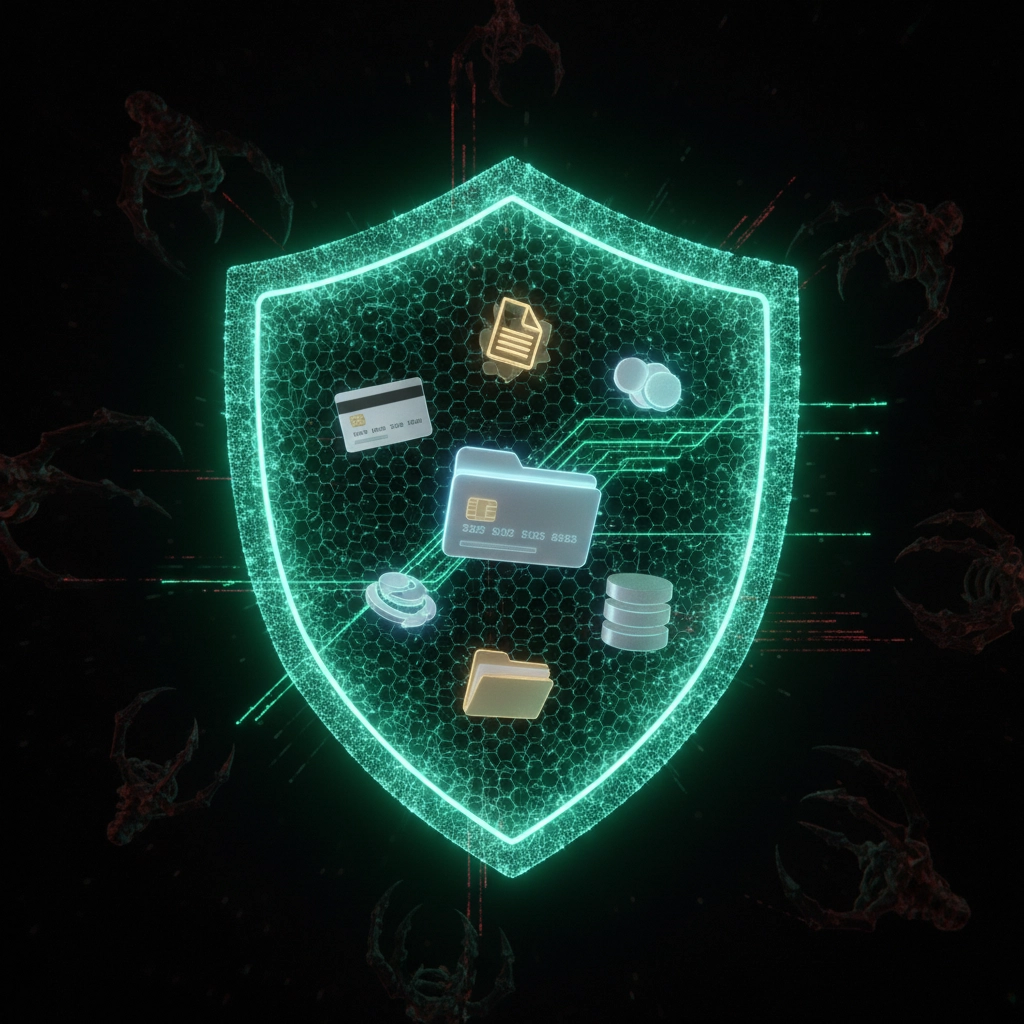
Do You Really Need a Cybersecurity Consultant? Here's the Truth Every Startup Should Know
1
2
0
Are you losing sleep wondering if your startup is a sitting duck for cybercriminals? You're not alone. Every day, entrepreneurs just like you grapple with a crucial question: should you hire a cybersecurity consultant, or can you handle security on your own?
Here's the truth that no one talks about: most startups fall into a dangerous middle ground. They're too small to afford enterprise-level security teams but too valuable to ignore the growing cyber threats targeting small businesses. The good news? You don't have to navigate this maze blindfolded.
Let's cut through the confusion and give you the clarity you need to make an informed decision about your startup's cybersecurity future.
When You Absolutely Need a Cybersecurity Consultant
You Handle Sensitive Customer Data
If your startup processes payment information, stores personal data, or handles confidential business information, you've crossed the line where cybersecurity becomes non-negotiable. A data breach doesn't just cost money: it can destroy your reputation overnight.
Consider this: the average data breach costs small businesses $2.98 million. For most startups, that's not just a financial setback; it's a business-ending catastrophe. A cybersecurity consultant brings specialized expertise that transforms your data handling from a liability into a competitive advantage.

Your Team Lacks Technical Security Knowledge
You're brilliant at what you do, but cybersecurity isn't your area of expertise: and that's perfectly okay! If your team consists of talented developers, marketers, and business strategists without dedicated security professionals, a consultant fills this critical gap.
Think of it this way: you wouldn't perform surgery on yourself, so why would you trust your business's digital security to guesswork? Cybersecurity consultants bring years of specialized training and real-world experience that your team simply cannot replicate overnight.
You're Experiencing Rapid Growth
Scaling your business is exciting, but it also exponentially increases your attack surface. More employees, more systems, more data, and more complexity create more opportunities for cybercriminals to strike.
A cybersecurity consultant can design scalable security frameworks that grow with your business. They'll anticipate future security needs and implement solutions that protect you today while preparing for tomorrow's challenges.
When You Might Not Need a Consultant (Yet)
You're Pre-Revenue with Minimal Digital Infrastructure
If you're still in the idea phase with no customer data, no online transactions, and minimal digital presence, you might be able to start with basic security measures. However, this window is typically very short for most modern startups.
Even at this early stage, establishing good security habits and basic protections sets a strong foundation for future growth. Consider this your grace period to learn fundamental security principles before scaling up.
You Have Strong In-House Technical Expertise
If your founding team includes experienced cybersecurity professionals or developers with strong security backgrounds, you might initially handle security internally. However, remember that even experts benefit from external perspectives and specialized knowledge.
The key question isn't whether you can handle security: it's whether you should. Your technical team's time might be better spent building your product while security experts handle protection.

How to Assess Your Security Needs
Conduct a Risk Assessment
Start by identifying what you need to protect. List all your digital assets: customer data, intellectual property, financial information, and business systems. Then evaluate the potential impact if each asset were compromised.
Ask yourself these critical questions:
What data would be devastating to lose or have exposed?
Which systems are critical to your daily operations?
How long could your business survive without access to key systems?
What compliance requirements apply to your industry?
Evaluate Your Current Security Posture
Take an honest inventory of your existing security measures. Do you have:
Strong passwords and multi-factor authentication?
Regular software updates and patch management?
Secure backup systems?
Employee security training?
Incident response plans?
If you're checking most of these boxes, you're ahead of many startups. If not, don't panic: recognizing gaps is the first step toward closing them.
DIY Security vs. Professional Help: The Real Comparison
DIY Security Advantages:
Lower upfront costs
Complete control over implementation
Learning opportunity for your team
Flexibility to make quick changes
DIY Security Disadvantages:
Requires significant time investment
May miss sophisticated threats
Limited access to enterprise security tools
Steep learning curve for non-experts
Professional Consultant Advantages:
Specialized expertise and experience
Access to advanced security tools
Faster implementation of comprehensive solutions
Ongoing support and monitoring
Industry compliance knowledge
Professional Consultant Disadvantages:
Higher upfront investment
Potential communication challenges
Less direct control over implementation
Ongoing service costs

Simple Security Steps Every Startup Should Take
Implement the Security Fundamentals
Whether you choose DIY or professional help, certain security basics are non-negotiable:
Create an Incident Response Plan
Even with the best security measures, incidents can happen. Having a clear response plan minimizes damage and helps you recover quickly. Your plan should include:
Contact information for key stakeholders
Steps to contain and assess the incident
Communication protocols for customers and partners
Recovery procedures and timeline
Post-incident analysis and improvement processes
Real-World Examples: Learning from Others' Experiences
Case Study 1: The E-commerce Startup That Waited Too Long
TechThreads, a small online clothing retailer, decided to handle security internally to save money. Within six months of launching, they suffered a data breach exposing 10,000 customer credit card details. The resulting fines, legal fees, and reputation damage cost them $150,000: far more than a cybersecurity consultant would have charged.
The lesson? The cost of prevention is always less than the cost of recovery.
Case Study 2: The SaaS Company That Invested Early
DataFlow Solutions hired a cybersecurity consultant during their seed funding round. The consultant identified vulnerabilities in their API security and helped implement robust data encryption. When a competitor suffered a major breach, DataFlow's proactive approach became a key selling point that helped them secure their Series A funding.
The takeaway? Security can be a competitive advantage, not just a cost center.

Making the Decision: A Practical Framework
Assess Your Risk Level
High risk: You handle sensitive data, operate in regulated industries, or have experienced security incidents
Medium risk: You have some digital assets but limited exposure
Low risk: Minimal digital infrastructure and no sensitive data
Evaluate Your Resources
Time: Can your team dedicate sufficient hours to security?
Expertise: Do you have the knowledge to implement effective security measures?
Budget: What can you realistically afford for security measures?
Consider Your Growth Trajectory
Fast growth requires scalable security solutions
Moderate growth allows for gradual security improvements
Steady state operations can maintain current security levels
Your Next Steps
The cybersecurity landscape doesn't wait for perfect timing or unlimited budgets. Every day you delay implementing proper security measures is another day of unnecessary risk.
If you're handling customer data, processing payments, or storing valuable intellectual property, the question isn't whether you need cybersecurity expertise: it's how quickly you can get it implemented.
For startups with limited budgets, consider starting with a security assessment from a reputable consultant. This relatively small investment can identify your biggest vulnerabilities and provide a roadmap for improvement.
Remember, cybersecurity isn't a destination: it's an ongoing journey. The threats evolve, your business grows, and your security measures must adapt accordingly.
Don't let fear or budget constraints leave your startup vulnerable. Take control of your cybersecurity future today, because your business's survival may depend on it.
Ready to take the next step in securing your startup? Explore our cybersecurity consulting services and discover how we can help protect what you've worked so hard to build.

![[HERO] The Golden Ticket: How ISO 9001 Gives SMEs a Massive Competitive Edge](https://cdn.marblism.com/uPt4zGG3thO.webp)
![[HERO] Modern Quality: The Final Verdict on ISO 9001 for Today](https://cdn.marblism.com/vCHFmRN88Yb.webp)
![[HERO] Counting the Cost: What Does ISO 9001 Actually Cost an SME?](https://cdn.marblism.com/ds1Nz_9uzoX.webp)